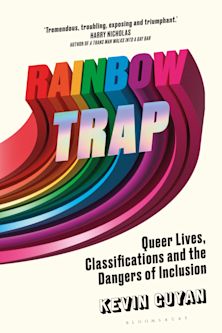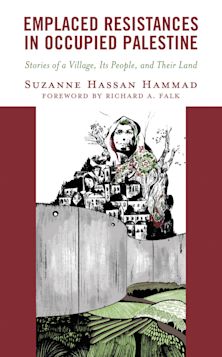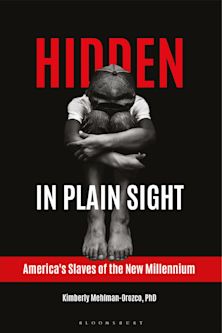- Home
- ACADEMIC
- Politics & International Relations
- Human Rights
- Mexico's Unrule of Law
Mexico's Unrule of Law
Implementing Human Rights in Police and Judicial Reform under Democratization
Mexico's Unrule of Law
Implementing Human Rights in Police and Judicial Reform under Democratization
This product is usually dispatched within 3 days
- Delivery and returns info
-
Free CA delivery on orders $40 or over
You must sign in to add this item to your wishlist. Please sign in or create an account
Description
Mexico's crisis of security is unrelenting. Why is it so hard to establish the rule of law, and why does the country's justice system continue to struggle to deliver both security and adherence to democratic values and human rights? To answer these questions, Mexico Unrule of Law: Implementing Human Rights in Police and Judicial Reform under Democratization looks at recent Mexican criminal justice reforms, placing this Mexico City case study of the social and institutional realities of the evolving police and justice system within the county's long-term transition from authoritarian to democratic governance. In spite of the democratization on the electoral front, profound distrust has continued to characterize not only the relationship between citizens and state institutions but also social, inter-state, and intra-state relations. Against this background, the book analyses extensive and penetrating police surveys and interviews to offer innovative ideas on how to simultaneously achieve greater community security, democratic policing, and adherence to human rights.
Table of Contents
Introduction
Chapter 1: Mexican Policing and Reform: a Theoretical Introduction
Chapter 2: A Lynching of Police: A Case Study of Mexican Policing
Chapter 3: Mexico's Criminal Justice System: Organized Chaos
Chapter 4: Reducing Police Abuse: the Democratization Project
Chapter 5: From Inside the Police: A Survey
Chapter 6: Police and Politics: A Legacy of Mistrust and the Failure of Reforms So Far
Chapter 7: Police and Justice Reforms, Security and Human Rights
Appendix A: Methodology
Appendix B: Survey
Appendix C: Open Interview Protocol
Product details
| Published | Mar 29 2012 |
|---|---|
| Format | Paperback |
| Edition | 1st |
| Extent | 332 |
| ISBN | 9780739128947 |
| Imprint | Lexington Books |
| Dimensions | 231 x 154 mm |
| Publisher | Bloomsbury Publishing |
About the contributors
Reviews
-
The quality of democracy and the rule of law are the key issues of contemporary Mexico. Mexico's Unrule of Law examines the contradictions and complexities of a key player inside the Mexican law enforcement system: the police. The Mexican police exemplifies many of the fundamental issues that undermine democratization and rule of law: corruption, abuse of authority, generalized distrust of public institutions, lack of transparency, predominance of informal arrangements, and politicization. Moreover, the book demonstrates that throwing money and grand-design organizational reforms, much less militarization, are not likely to resolve the crisis of Mexican policing and law enforcement in general. Instead, the author calls for alternative strategies and projects of reform that link to the core of the problem: to reconnect citizens and the state in order to reassemble the state as an institutional and moral order from below.
Will G. Pansters, University of Groningen and Utrecht University
-
Mexico's Unrule of Law makes an uncommonly serious attempt to grapple with the interaction of policing themes too often normally dealt with in relative isolation. By probing the multilayered, sometimes mutual and often competing obligations between and among police rank and file, their managers and political masters, and the individuals and communities they ostensibly serve, Niels Uildriks seeks to show us not only the form but the fiber of the Gordian knot of police reform. That task is especially daunting in Mexico, where police managers are buffeted by the elevation of politics over policy; police institutions lack the fundamental tools for effective law enforcement; officers are demoralized by their vulnerability to the whims of superiors; while the public suffers from the profound impunity enjoyed by police for serious rights abuse and widespread corruption. With the elements of this complex portrait in hand, readers of Unrule of Law-which will hopefully include more than a few police officials-will be able to reflect in a more concerted fashion about what needs to be done.
Robert O. Varenik Robert O. VVARENIK, Open Society Justice Initiative
-
Niels Uildriks, known for his doctorate on norms and control of police violence, has researched the considerable efforts made at reforming the Mexican police force into an effective organization based on the rule of law. The result is a sound study, with a solid empirical body of work firmly rooted in the scientific literature, on Latin America and the police.
Guus Meershoek, Crimelink
-
With its astounding array of materials on the Mexican justice system, this book will convince its readers of the tangled complexity of Mexico's war on crime, the huge institutional barriers to winning that battle, and the sheer importance of staying committed to the struggle despite the tremendous task at hand. As a resource for facts on the administration of the justice system in Mexico, holding within its pages in-depth examination of police corruption, human rights abuses, citizen disenfranchisement, and the impact of politics on efforts to reform, there is no single other source in English that comes close to this book in content and sweep. Niels Uildriks has accomplished the near impossible with this compilation of disparate but critical materials on policing, human rights, and judicial reform.
Diane E. Davis, Massachusetts Institute of Technology
-
In this book, Dutch scholar Uildriks (Institute for Safety and Security and Crisis Management, Netherlands) analyzes the various overwhelmingly unsuccessful attempts to reform the police and criminal justice systems and thus improve human rights in Mexico since its democratization in 2000. The specific focus is on policing in Mexico City, and the main contribution of the book is a survey of and interviews with police there. One key change since democratization is that the population is less fearful of the police. However, the broad policing problems of human rights abuses, pervasive and hierarchical corruption, and lack of horizontal oversight by other government agencies remain. More broadly, Mexico lacks a truly democratic political culture in which laws and state actors are seen as legitimate and deserving of being followed. Uildriks proposes further reforms in the areas of internal police structures (e.g., appointments, training, promotion, and discipline) and decentralization, including community policing. The key goal is to increase police accountability and public trust. Summing Up: Recommended. Upper-division undergraduates, graduates, and above.
Choice Reviews
-
Mexico’s Unrule of Law, a book that seeks to “probe the impact of different police reforms in terms of reduction of human rights abuses” in the country, is certainly good news for scholars, practitioners, and anyone interested in understanding the deep problem of insecurity that has engulfed Mexico in recent years (xiii).
H-Net: Humanities and Social Science Reviews Online



































